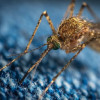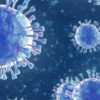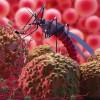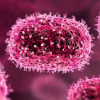
 IJCP Editorial Team
IJCP Editorial Team
The Japanese Diet Prevent Fatty Liver Progression
A recent study published in the MDPI journal, revealed that adopting the Japanese diet could lower the risk of liver fibrosis progression in patients with non-alcoholic fatty liver disease (NAFLD).
The study examined 136 patients with NAFLD, undergoing treatment at Osaka Metropolitan University Hospital in Japan. It found that the Japanese diet, which includes foods like rice, miso soup, pickles, soy products, green and yellow vegetables, fruits, seafood, mushrooms, seaweed, green tea, coffee, beef, and pork, was associated with a reduced risk of advanced liver fibrosis. In particular, higher intakes of soybeans, fish and shellfish, and seaweed was linked to a lower advanced fibrosis risk.
Japanese diet is rich in high-fiber foods like seaweed and mushrooms, fermented foods like pickles, and antioxidant nutrients like vitamin C, β-carotene, and α-tocopherol. Dietary fiber found in Japanese foods can help lower cholesterol levels and modulate the gut microbiota; thus, reducing the risk of liver fibrosis progression.
The results underscored the potential benefits of adopting the Japanese diet in preventing and treating NAFLD-associated liver damage.

IJCP Editorial Team
Comprising seasoned professionals and experts from the medical field, the IJCP editorial team is dedicated to delivering timely and accurate content and thriving to provide attention-grabbing information for the readers. What sets them apart are their diverse expertise, spanning academia, research, and clinical practice, and their dedication to upholding the highest standards of quality and integrity. With a wealth of experience and a commitment to excellence, the IJCP editorial team strives to provide valuable perspectives, the latest trends, and in-depth analyses across various medical domains, all in a way that keeps you interested and engaged.














Please login to comment on this article